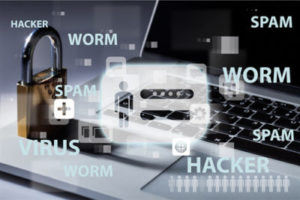phishing
How to Recover from a Phishing Password Compromise
What is a Phishing Password Compromise?
A phishing password compromise occurs when an attacker tricks you into revealing your login credentials, such as your username and password, through a phishing attack. Once the attacker has your login credentials, they can access your account and steal sensitive information or use your account for malicious purposes.
Ways to Avoid Email Phishing Scams
What is Email Phishing?
Email phishing is a type of cyber attack where the attacker sends a fraudulent email to trick the recipient into revealing sensitive information, such as login credentials or financial information. Phishing emails can be very convincing and may appear to come from a legitimate source, such as a bank or a popular online service.
FBI Releases Article on Defending Against Phishing and Spearphishing Attacks
 In recognition of National Cybersecurity Awareness Month (NCSAM), the Federal Bureau of Investigation (FBI) has released an article to raise awareness of phishing and spearphishing. The article provides guidance on recognizing and avoiding these types of attacks.
In recognition of National Cybersecurity Awareness Month (NCSAM), the Federal Bureau of Investigation (FBI) has released an article to raise awareness of phishing and spearphishing. The article provides guidance on recognizing and avoiding these types of attacks.
The Cybersecurity and Infrastructure Security Agency (CISA) encourages users to review the FBI article and CISA’s Tip on Avoiding Social Engineering and Phishing Attacks. For more information on NCSAM, see the NCSAM 2019 webpage and the NCSAM 2019 Toolkit. Users can report suspected attacks to their local FBI office or to the FBI’s Internet Crime Complaint Center at www.ic3.gov.
Small Business Cybersecurity Guide
 The Australian Cyber Security Centre (ACSC) has released a cybersecurity guide for small businesses. The U.S. Cybersecurity and Infrastructure Security Agency (CISA) has redistributed the guide and encourages small business owners and administrators to review the guide, which provides checklists to help small businesses protect themselves against common cybersecurity incidents.
The Australian Cyber Security Centre (ACSC) has released a cybersecurity guide for small businesses. The U.S. Cybersecurity and Infrastructure Security Agency (CISA) has redistributed the guide and encourages small business owners and administrators to review the guide, which provides checklists to help small businesses protect themselves against common cybersecurity incidents.
Would you like help completing the cybersecurity checklist for small businesses at the end of the guide? Contact Widomaker to set up a time we, or a local partner, can review the guide with you and determine how to implement the recommendations in your small business environment.
Click the button, below, to review the guide…
Another Reminder About Phishing E-mail Messages
Reminder… Widomaker will never ask for your password, credit card, or other personal information via e-mail! Make sure to never provide that type of information in response to an unsolicited e-mail message.
A Reminder About Phishing E-mail Messages
Reminder… Widomaker will never ask for your password, credit card, or other personal information via e-mail! Make sure to never provide that type of information in response to an unsolicited e-mail message.
Avoid Tech Support Scams
This is a reminder to avoid falling for Tech Support Scams.
Tech Support Scams, typically, involve someone cold calling a potential victim, saying they are with a trusted organization or company, such as Microsoft or Windows, and warning that the victim’s computer is malfunctioning or infected with a dangerous virus. Then the caller (scammer) offers to help by having the victim download software, or remotely connecting to the victim’s computer, to fix the problem.
A Reminder About E-mail and Phishing
Reminder… Widomaker will never ask for your password, credit card, or other personal information via email!
Visit the below links for more information…



